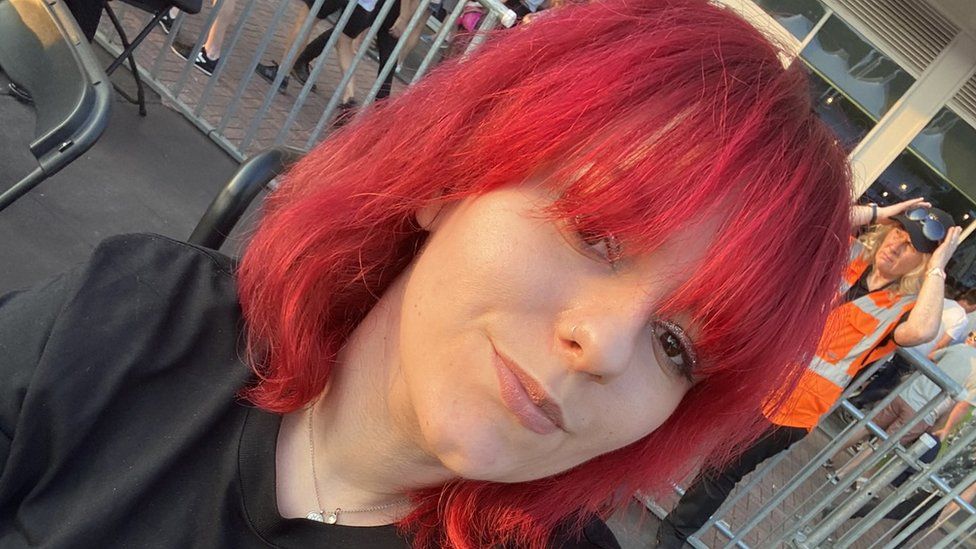
What's on your UK summer festival season checklist? Probably a mix of top bands, warm hazy days with friends and answered prayers for at least a little sun (as well as a sturdy tent).
But for many disabled festival-goers, simply knowing whether they'll be able to access the toilet can often top the bill before any headline act.
Festivals have long included accessible portaloos by disabled viewing platforms as part of "reasonable adjustment" provisions under equality law.
However, disabled people say the cubicles provided are often too small to fit a wheelchair inside - let alone a personal assistant if needed.
For Faith Martin, a freelance music writer who uses a wheelchair and needs support to transfer to the toilet, the frequent lack of genuine toilet options means she is left with no choice but to limit her water (and alcohol) intake.
This can sometimes stretch up to 15 hours, depending on festival duration and travel time - all in an effort to enjoy the music and be part of the live experience.
"I check the festival's facilities before booking, but usually the accessible toilets by viewing platforms aren't big enough, so I have to wait until I'm home or back at the hotel to use the bathroom. Camping just isn't a realistic option," she tells BBC News.
"I focus on drinking enough the day before, as I know I probably won't be able to risk it during a show."
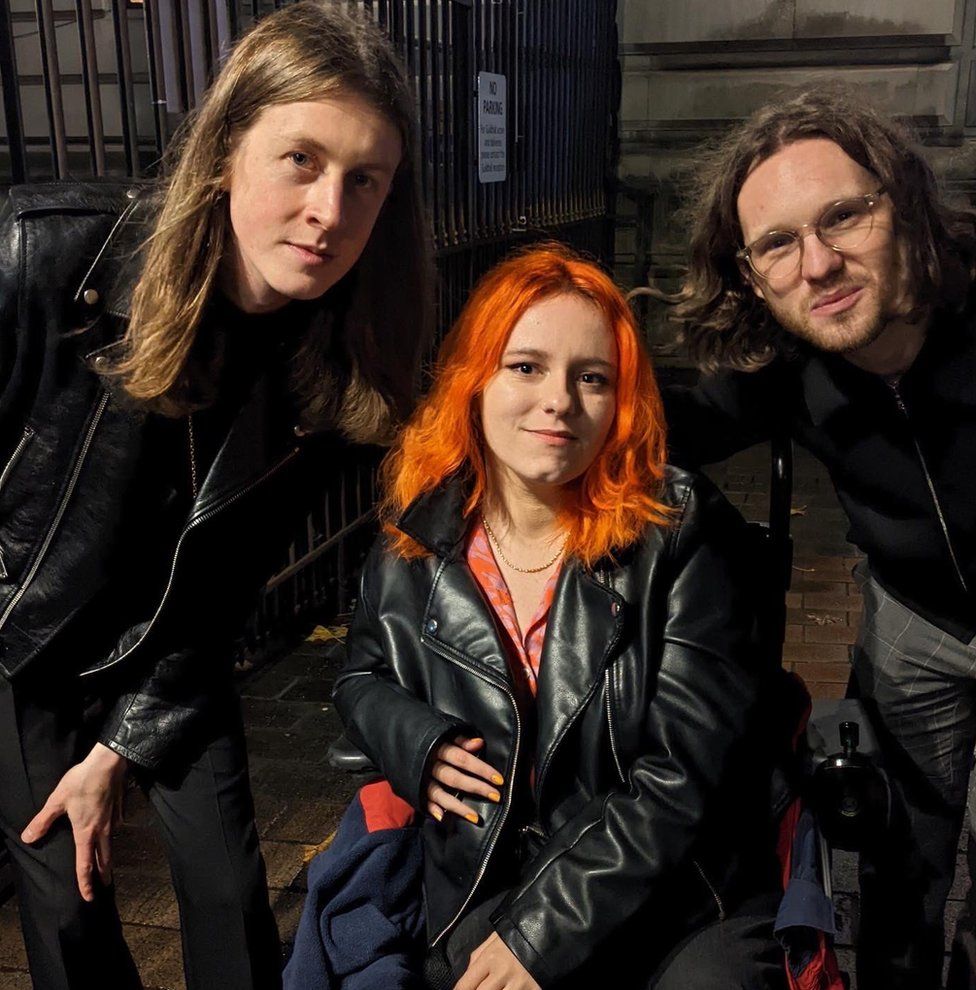
In recent years, as festivals have become more mainstream and calls for inclusivity have grown, a number of improved, truly accessible portaloos have come on the market.
These are based on elements of the specialist Changing Places disabled toilets and built to meet a broader spectrum of needs.
They provide ample space for a wheelchair and someone to assist, include grab rails, and sometimes hoists and washing facilities.
The mobile units can be standalone - such as GigLoo's accessibility model - or fully integrated into vehicles, transported by companies like Mobiloo and Revolootion.
Most major multi-day festivals do now hire these more comprehensive facilities, but often only at disabled campsites and not around the stages themselves.
This can be severely disruptive for disabled music fans. Those without campsite tickets are left without access to the improved facilities, while even those granted entry face long trips to and from their tents every time they need to use the bathroom. Beyond personal comfort, this can make the already tricky business of juggling stage timings even harder.
Live music access charity Attitude is Everything, which works with festivals and venues to improve the experience for deaf and disabled fans, now operates a charter of best practice - publicly granting gold, silver and bronze status depending on their accessibility level.
Another organisation, Blue Badge Style, also rate building and event accessibility, with annual awards including best and "most ludicrous" loo.
Faith says it is only with these facilities nearby the viewing platforms that she feels fully comfortable attending shows that go beyond a few hours.
"I only really tend to go to Victorious now as it's in my hometown of Portsmouth and they have Mobiloos dotted around the viewing platforms, so everything I need to worry about is always sorted," she says.
"I would love to attend festivals like Glastonbury and Reading and Leeds but I never know what 'accessible' means."
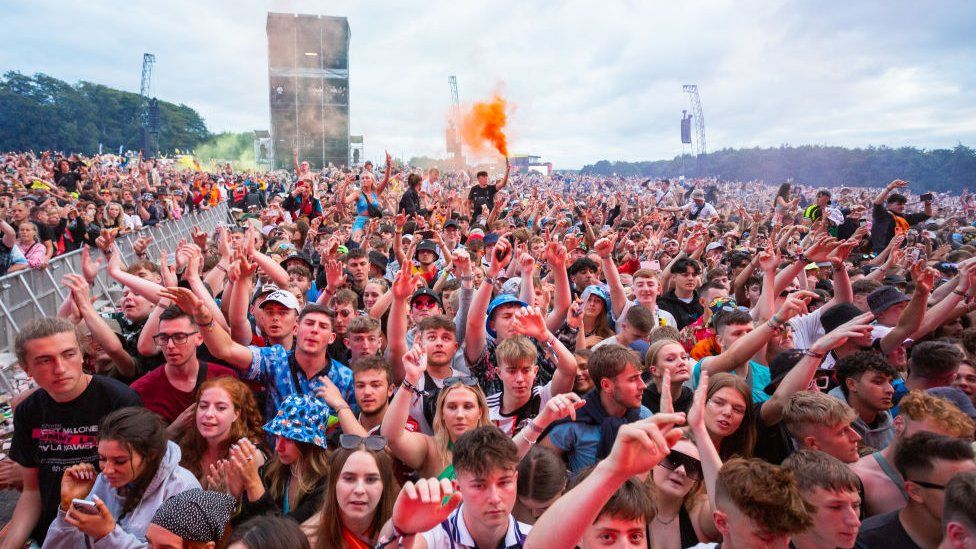
Reading and Leeds festival, which takes place this weekend, features headline performances from The 1975, Billie Eilish and The Killers
The website for this year's Reading and Leeds festival only lists a Changing Places-style accessible toilet at the disabled campsite.
Although the website lists accessible toilets within the arena as well, it lacks clarity regarding the specific operational details and functionality of these facilities. BBC News contacted Reading and Leeds, and organisers Festival Republic, for further comment.
Faith adds she is contemplating giving up music journalism because the broader disability access issues associated with the job, from transport to accommodation, make navigating the scene too difficult.
"The problems go beyond loos - disabled people need infrastructure change, not just accessibility improvements," she says.
'Stuck in the toilet'
Faith is not alone in her toilet struggles. Tracey Falcon - a long-time visitor to Womad festival - she says she found herself stuck in a supposedly accessible toilet last year when she attended for the first time as a wheelchair user following a spinal injury.
"I was devastated to find that I could only just squeeze my wheelchair into the accessible loos provided, but then couldn't turn to shut the door or transfer to the loo," she explains.
"I kept asking the accessibility stewards: 'Am I being thick? How do other people manage?' - they said they didn't know, but tried to help as best they could."
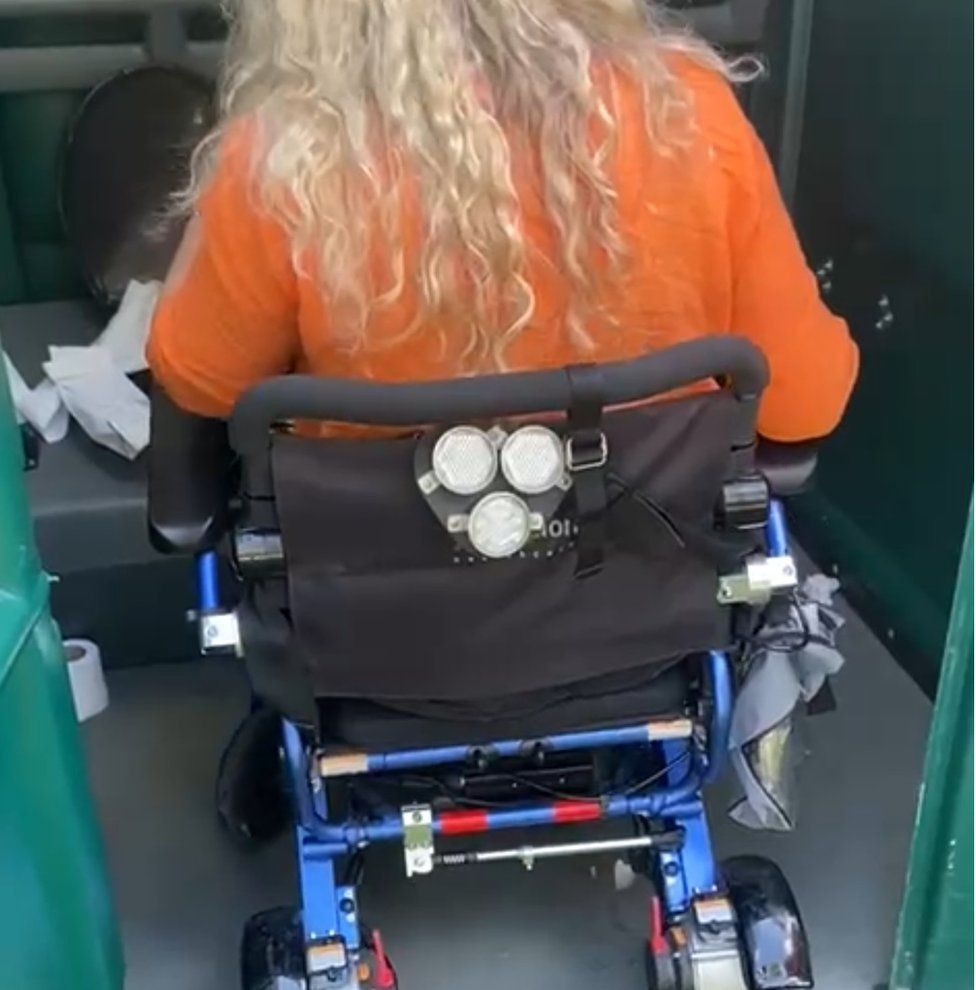
The mismatch between the accepted build design of many accessible festival portaloos and their failure to meet the needs of a high percentage of disabled customers appears the result of poorly defined regulations - particularly compared to those for indoor toilets.
UK regulations require standard disabled toilets in buildings to be built to a minimum of approximately 7ft 2.63in (2200mm) in length and 4ft 11.06in (1500mm) in width.
The same clarity is not readily in place for accessible portaloos at festivals. This often results in them being much smaller than required, but still passed as legally compliant in meeting festival obligations to take "reasonable" steps to accommodate disabled customers.
For festival organisers the situation can feel a quagmire.
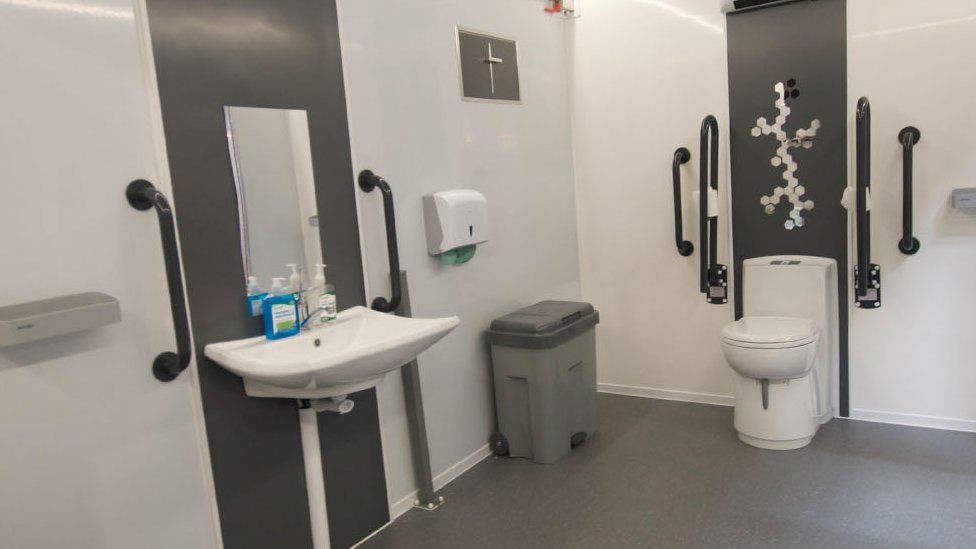
Disability is a sliding scale - just like clothes, there is no one size that fits all, and the same is true for individual ideal accessible toilet requirements.
The practical limitations of a remote, crowded festival setting, combined with rising post-Covid financial pressures exacerbated by Brexit, add to the challenge.
In response to Tracey's experience, Womad organiser Chris Smith told BBC News that the festival "remains committed" to providing the best facilities available, but that complexities exist.
"Womad disabled toilet provision exceeds legal requirements and are dispersed across the site to improve access," he says. "One of the challenges is that wheelchair design has improved considerably in recent years, which is a good thing, but accessible toilets have not yet evolved to reflect this.
"Where new products are becoming available the costs are currently prohibitive, particularly in the context of a green field family event with 40,000 people attending, spread over a large area for four days".
In light of these difficulties, disabled festival-goers such as Ameena Berkowitz - who has been attending Womad for decades - say they have to get creative to manage what she describes as the "pee maths".
Her solution has been to hire a yurt to give herself more space with her personal assistant, but also increased privacy when she is left no option but to "pee in a bucket".
"I'm not alone - I know many disabled people who are resorting to the toilet in their tent, which I think shows how traditional accessible portaloos are failing disabled customers," she says.
To help improve the situation, Ameena along with Tracey and others, has proposed crowdfunding a fully accessible toilet solution like Mobiloo. The festival say they are willing to consider this and have also launched an independent consultation with disabled fans.
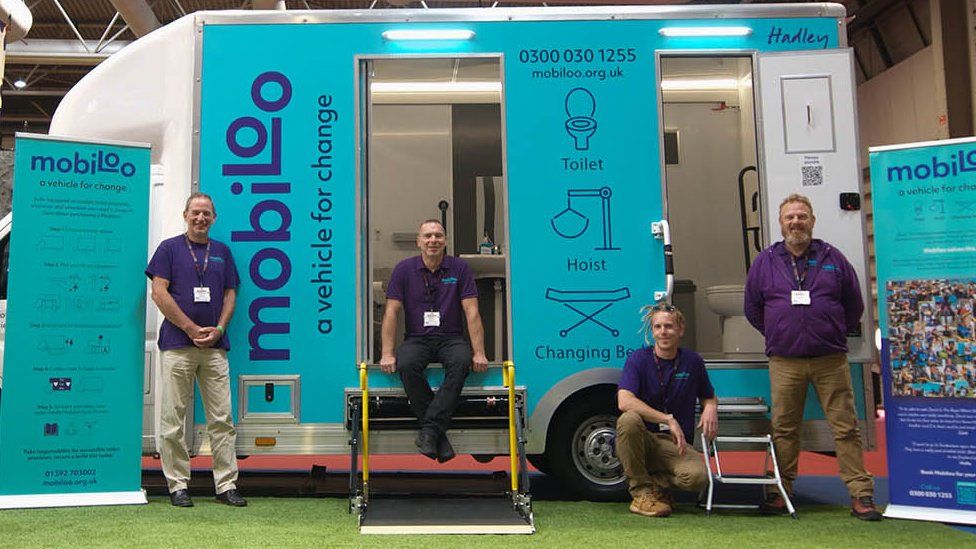
James Brown, who runs Mobiloo and is disabled himself, says the company launched out of a recognition that the current accessible toilet standard is "wholly inadequate".
"They are only accessible to some. Therefore it doesn't meet the legal duty not to discriminate - we seek to provide a whole solution". James says that festivals "increasingly recognise" the need for fully accessible disabled facilities throughout their events - not just at campsites.
In response to financial concerns put forward by festivals organisers, he adds Mobiloo remains nonprofit to offset costs, despite challenges to meet growing demand. Hire rates range from £545 for up to 10 hours to £755 for round-the-clock service - all fully attended by one of the company's staff facilitators.
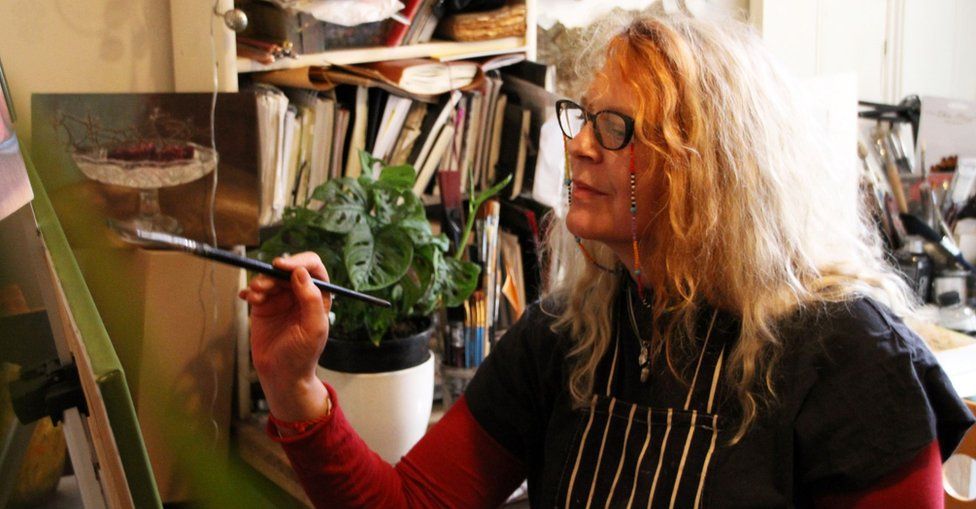
For Tracey, who skipped Womad this year over concerns she would get stuck inside the portaloo again, the situation is both as complex as it is simple.
"I want a legislative solution that ensures accessible portaloos are made to fulfil basic requirements and worth the disabled sign they have on them".
From BBC
